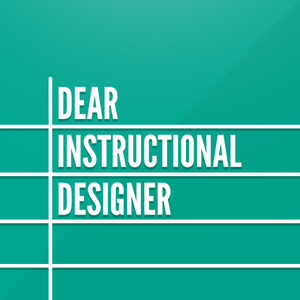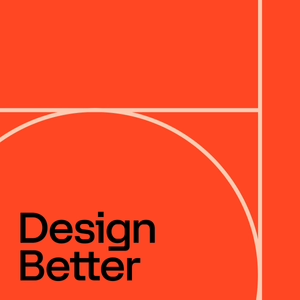
Ep 166: 2024 Yearapalooza
12/15/24 • 59 min
Previous Episode

Ep 165: 10 Myths about Architects
We’re going to explore some of the most common myths about architects and peel back the layers to reveal what this profession is really about.
Next Episode

Ep 167: How Did We Get Here?
It is the start of a New Year, everything still smells fresh and most things looking forward are theoretically in place for an amazing year ... at least I think so. Since it is first podcast episode of 2025, today’s conversation is more of an introspective look into a career and just how bad or good things have gone over the last 30+ years. While this is not a look into my own personal diary, it should provide you with a framework when you decide to look at whatever it is you’ve got going on as well. Welcome to Episode 167: How Did We Get Here? [Note: If you are reading this via email, click here to access the on-site audio player] I have a guest on today’s episode as my typical co-host Andrew Hawkins, who was supposed to be in Japan during the time we needed to record, fell sick enough that he had to cancel this trip and is currently recovering at home. To that end, I have another good friend of mine sitting in to play point/counterpoint in today’s conversation. I have asked friend, neighbor, and just like me, a Principal and Senior Project Designer at BOKA Powell, and 3-time participant on the podcast Lane Acree to sit in and hopefully not point out just how dumb I am. Given today’s topic, I thought it would be interesting to see how two people who didn’t even know each other a few years ago both ended up in the same place, despite the reasons behind the journey being completely different. Bob Borson one fateful Christmas morning ... The Beginning jump to 05:06 When I reflect on how I got started in architecture, it all goes back to the moment my dad gave me a drawing table at age five. From that day on, I knew I wanted to be an architect (he might have been angling for engineer but that's on him for not being more specific). I never questioned whether I would go to college—it was a given in my house—but I did face doubts that the profession that I had decided on might not be the right fit for me once I actually started my freshman year. I wasn’t as driven as my classmates, and I began to worry that I wasn’t cut out for architecture after all. Looking back, it wasn’t that I lacked ability; I just wasn’t putting in the same level of commitment. My parents had been strict, so when I got to Austin, I had all this freedom and indulged in everything the city had to offer. Eventually, I hit crisis point at the end of my freshman year and and took a year off from design studio during my sophomore year. I continued my other classes, but I needed that break to figure out what I truly wanted. When my junior year began, something clicked. I realized I wasn’t actually bad at design—I just needed to put in the work. That realization changed everything. It was a lesson in prioritizing my goals, a skill that still matters to me to this day. Meanwhile, Lane took a different path. He discovered architecture at a young age—around sixth grade—when he witnessed the process of designing his family’s home with a draftsman. From that point on, he immersed himself in art classes and drafting throughout high school and then once in college, he ended up landing a job at a small architecture office where he spent every summer and holiday break. That real-world experience gave him a big advantage over classmates who never set foot in a firm until after graduation. I find Lane’s background intriguing because he gravitated towards the use of computers, even when some of his professors believed technology stifled creativity. He taught himself tools like 3D Studio Max and came out of school with cutting-edge skills at a time when most people were still using the drafting board. By contrast, we didn't even have the option to use computer software while I was in college (despite only being only 10 years older than Lane). My focus was never on starting my own firm ... I just had 3 goals for myself once I graduated. I wanted to make a good living (which meant a yearly salary of $100,000), see one of my buildings get published in a history book,...
If you like this episode you’ll love
Episode Comments
Generate a badge
Get a badge for your website that links back to this episode
<a href="https://goodpods.com/podcasts/life-of-an-architect-208073/ep-166-2024-yearapalooza-80111925"> <img src="https://storage.googleapis.com/goodpods-images-bucket/badges/generic-badge-1.svg" alt="listen to ep 166: 2024 yearapalooza on goodpods" style="width: 225px" /> </a>
Copy




